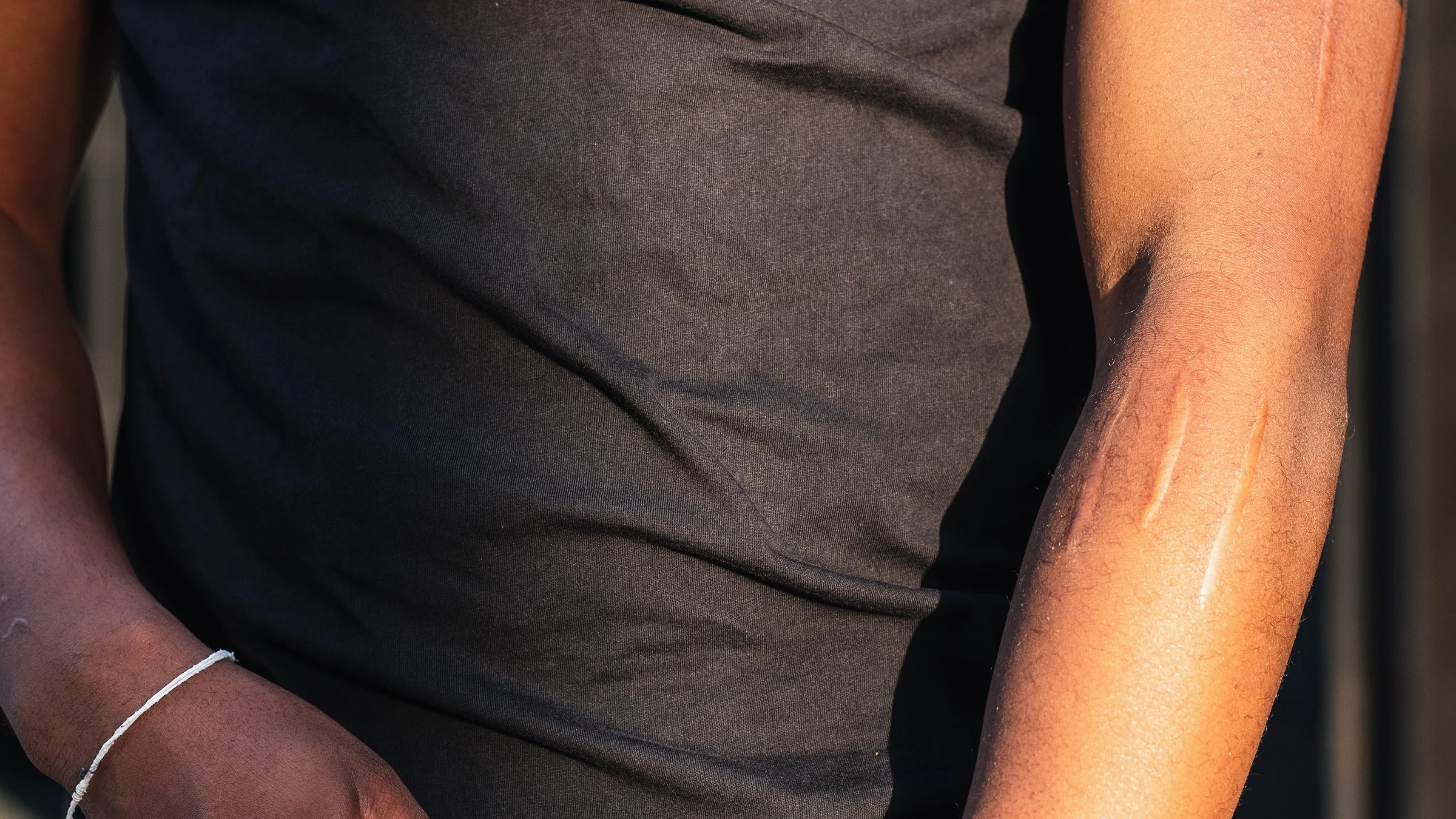Key takeaways:
There’s not much science backing up the claim that vitamin E helps fade scars.
Proper wound care is the best thing you can do to minimize the appearance of a scar.
For more serious scars, treatments that can help include laser resurfacing, cryotherapy, and scar removal surgery.
Scars are a normal part of life. Whether it’s from scraping your leg or having surgery, getting scars is common. And, if you’re like most people, you’re interested in ways to minimize the appearance of scars.
Vitamin E creams and serums have been promoted as one solution to help scars fade fast. Vitamin E is an important antioxidant with many health benefits, like supporting a healthy immune system. You get it from many different foods, such as nuts and leafy greens.
Vitamin E has also been used for decades in different skincare products. But does it actually help fade scars?
Search and compare options
Here, we’ll take a look at what the science says about vitamin E and scars. We’ll also talk about what actually works to help fade scars fast.
Is vitamin E good for scars?
The short answer is: probably not. Some people may benefit from applying vitamin E oil or cream to their scars. The science is mixed, though, and some studies show that it doesn’t work at all. Larger studies are needed to prove whether vitamin E can help fade scars.
Let’s take a look at what the research says so far.
Is vitamin E effective for certain types of scars?
There are a few different types of scars. Two common ones are hypertrophic scars and keloids. The main difference between these two scar types is their size. Hypertrophic scars stay in the area of injury. But keloids can grow much bigger.
Two small studies showed that vitamin E may be helpful in preventing or fading these two types of scars:
For surgery scars: One small study showed that using vitamin E before and after surgery helped improve scar appearance and prevent keloids from forming. However, the study was in white children who are less likely to develop keloids.
When used with silicone gel: Another smaller study showed that vitamin E combined with silicone gel was better at improving hypertrophic and keloid scar appearance (like color and size) compared to silicone gel alone.
Can treatment make my scars go away? Learn about what treatments work best to get rid of scars.
Is my wound healing well? Here’s how to tell whether your wound is healing or infected — and what to do about it.
How much does laser acne scar removal cost? Here’s what to know about the cost of acne scar removal and whether insurance will cover it.
However, there’s research showing that vitamin E doesn’t work well for scars. For example, two other small studies showed that vitamin E didn’t improve the appearance of surgical scars at all. Not only that, but another study showed that about 1 in 3 people who used vitamin E for scars developed an allergic skin reaction called contact dermatitis. And some people’s scars actually got worse after using vitamin E.
Does vitamin E have other skin benefits?
Vitamin E may not help with scars. But it can have other benefits for the skin — especially when combined with certain ingredients. Here are some examples:
Vitamins E and C are both antioxidants that work better together. They help to protect skin against damage from UV rays and prevent photoaging.
Vitamin E combined with vitamin C, vitamin K1, and retinol may help improve under-eye wrinkles and dark circles.
Save on medications with GoodRx
What’s the best way to reduce the appearance of scars?
Whenever you cut your skin, a scar will develop after it heals. These scars tend to fade and become less noticeable over time. There are things you can do, though, to minimize scars. This involves taking care of your wounds and getting scar treatment later on.
Wound care
How you care for a skin wound has a big impact on the appearance of the scar from the start. Here are some steps you can follow to help your wound heal and minimize the appearance of scars:
Keep the skin wound clean with mild soap and water.
Apply Vaseline (petroleum jelly) to keep it from drying out and forming a scab.
Cover the area with a bandage, hydrogel, or silicone gel sheets.
Change the bandage daily as it heals.
Once the wound has healed, regularly use sunscreen on the scar with an SPF of at least 30.
Scar treatment
Once a scar has formed, there are some other effective ways to help reduce its appearance. The best treatment depends on the type of scar you have, so talk to your primary care provider or dermatologist for guidance.
Here are some possibilities to consider:
Use pressure therapy (like an elastic bandage or stocking).
Use topical retinoids.
Get corticosteroid injections at your doctor’s office.
Have surgical treatment to minimize the scar (like laser treatment or cryosurgery).
Frequently asked questions
In some people, silicone strips can help improve the appearance of scars. However, the evidence for how well they work isn’t very strong. To get the best results, they have to be worn every day, often for months. This can be inconvenient and can cause skin irritation in some people.
Talk to your dermatologist or primary care provider to see if silicone gel is a good option for you.
For best healing, it’s good to protect scars from the sun for at least 6 to 12 months. This can be done by covering the scar with clothing or a bandage. Once the scar has fully healed, use regular sunscreen of at least SPF 30. This will help fade any red or brown discoloration and help the scar fade faster.
Laser scar treatments are effective. But they can be expensive, costing anywhere from hundreds to thousands of dollars. The cost of treatment will depend on a few factors, including:
The size and number of scars
Which specific procedure you choose
Whether the treatment is from a doctor or esthetician
Keep in mind that insurance won’t cover cosmetic scar treatment. But it may cover some of the cost of treating injury scars.
In some people, silicone strips can help improve the appearance of scars. However, the evidence for how well they work isn’t very strong. To get the best results, they have to be worn every day, often for months. This can be inconvenient and can cause skin irritation in some people.
Talk to your dermatologist or primary care provider to see if silicone gel is a good option for you.
For best healing, it’s good to protect scars from the sun for at least 6 to 12 months. This can be done by covering the scar with clothing or a bandage. Once the scar has fully healed, use regular sunscreen of at least SPF 30. This will help fade any red or brown discoloration and help the scar fade faster.
Laser scar treatments are effective. But they can be expensive, costing anywhere from hundreds to thousands of dollars. The cost of treatment will depend on a few factors, including:
The size and number of scars
Which specific procedure you choose
Whether the treatment is from a doctor or esthetician
Keep in mind that insurance won’t cover cosmetic scar treatment. But it may cover some of the cost of treating injury scars.
The bottom line
Vitamin E is promoted as a good treatment to minimize scars. But there’s not much science backing up this claim. So far, the studies are mixed as to how effective vitamin E is at fading scars. More research is needed on this question.
The best way to minimize a scar is to do good wound care, including keeping it clean and covered with petroleum jelly and a bandage. Other treatments that can minimize scars include pressure therapy, corticosteroid injections, and surgical treatments (like lasers). If you’re concerned about scars, talk to a healthcare professional to understand your options.

Why trust our experts?



References
American Academy of Dermatology Association. (n.d.). 10 things to know before having laser treatment for your scar.
American Academy of Dermatology Association. (n.d.). Proper wound care: How to minimize a scar.
American Academy of Dermatology Association. (n.d.). Scars: Diagnosis and treatment.
American Academy of Dermatology Association. (n.d.). Scars: Signs and symptoms.
American Osteopathic College of Dermatology. (n.d.). Cryosurgery (cryotherapy).
Baumann, L. S., et al. (1999). The effects of topical vitamin E on the cosmetic appearance of scars. Dermatologic Surgery.
Keen, M. A., et al. (2016). Vitamin E in dermatology. Indian Dermatology Online Journal.
Lin, J., et al. (2003). UV photoprotection by combination topical antioxidants vitamin C and vitamin E. Journal of the American Academy of Dermatology.
MedlinePlus. (2023). Vitamin E.
Meetam, T., et al. (2024). Evidence of potential natural products for the management of hypertrophic scars. Journal of Evidence-Based Integrative Medicine.
Mitsuishi, T., et al. (2004). The effects of topical application of phytonadione, retinol and vitamins C and E on infraorbital dark circles and wrinkles of the lower eyelids. Journal of Cosmetic Dermatology.
National Health Service. (2023). Scars.
Palmieri, B., et al. (1995). Vitamin E added silicone gel sheets for treatment of hypertrophic scars and keloids. International Journal of Dermatology.
Tanaydin, V., et al. (2016). The role of topical vitamin E in scar management: A systematic review. Aesthetic Surgery Journal.
Zampieri, N., et al. (2010). A prospective study in children: Pre- and post-surgery use of vitamin E in surgical incisions. Journal of Plastic, Reconstructive & Aesthetic Surgery.














